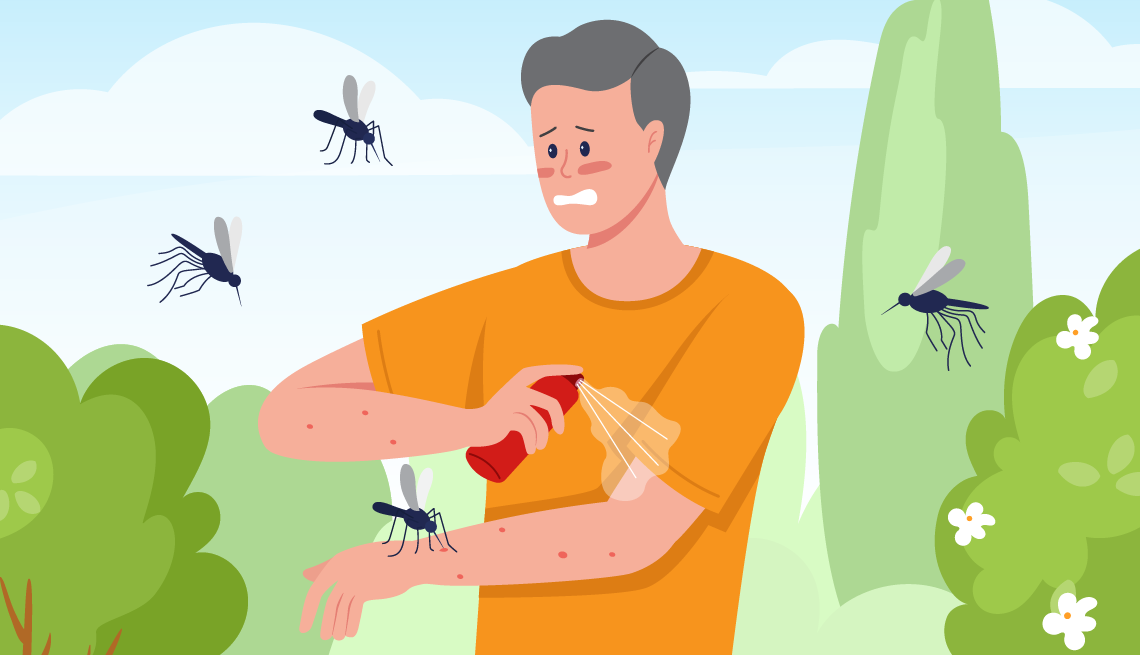
Permethrin-treated clothing was still effective after three months of wear, according to a study published in Parasites & Vectors, and a 2020 paper published in the Journal of Medical Entomology found that treated clothing is associated with 65 percent fewer tick bites. An earlier study from researchers in London found that wearing long-sleeved shirts and pants treated with the synthetic repellent reduced mosquito bites by 91 percent.
Katie Westby, a staff scientist in vector and disease ecology at Washington University in St. Louis, offers a word of caution.
“[Permethrin] should never be applied to skin; you treat your clothes with it,” she says. “It is harmful to pets, so it should be applied to clothing outdoors where animals will not come into contact with it.”
3. Switch up your wardrobe
Mosquitoes appear to use specific wavelengths on the visual spectrum to locate a target. Their preferred colors: red, orange, black and cyan (a greenish-blue), according to a study published by researchers at the University of Washington in the journal Nature Communications.
Opting for an outfit that is green, purple, blue or white — colors that mosquitoes avoid — could leave you with fewer bites during outdoor adventures.
Despite the potential for the color of your clothing to ward off mosquitoes, Westby says, “you would need to be completely covered for this to be an effective strategy to avoid bites.” But it can’t hurt to dress (not to) impress mosquitoes this summer.
4. Use insect repellent
Stick with the basics. Insect repellents that contain DEET are considered the “gold standard” when it comes to reducing bug bites and preventing mosquito-borne diseases.
The chemical signature in the insecticide interferes with the mosquito’s scent receptors, causing the insect to get confused and keep moving, and DEET-based products provide longer-lasting protection than insect repellents with other active ingredients.
Given the complex interaction of body odor, personal care products, diet and activity level that can make you more — or less — attractive to mosquitoes, Vinauger says, “I would still recommend using a conventional mosquito repellent.”
5. Lawn treatments
Pest companies offer treatments that blanket the lawn with insecticides to reduce mosquito populations. The treatments can work, though studies show that rainfall, the equipment used and application techniques can make them less effective — and the results might only be temporary.
“[Treatments] only kill mosquitoes that are in your yard at the time of spraying,” says Deborah Landau, director of ecological management for the Nature Conservancy. “Mosquitoes typically fly 1 to 3 miles, so they can quickly repopulate your yard.”
What Does and Doesn't Help Repel Mosquitoes - AARP
Read More

No comments:
Post a Comment